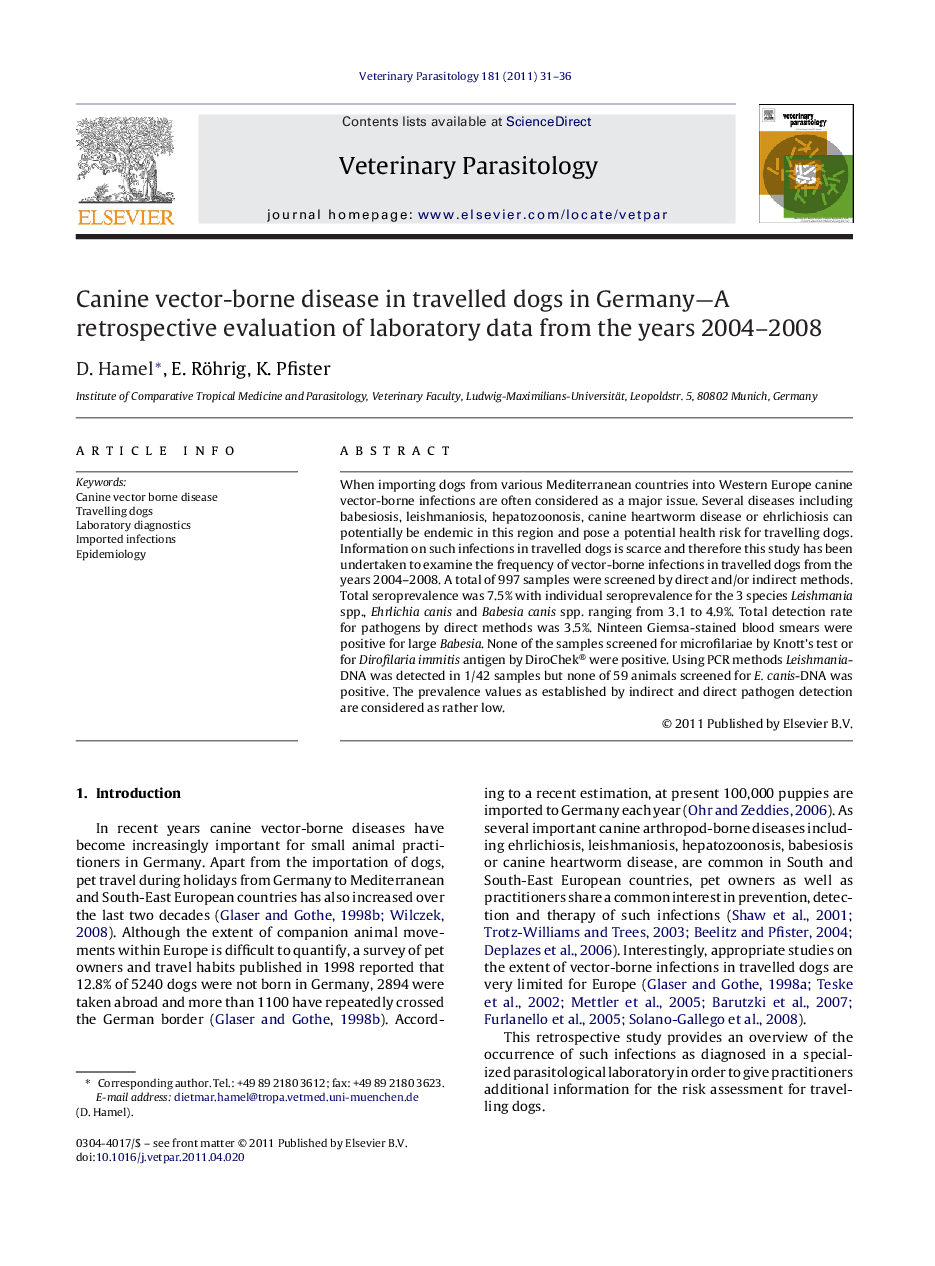| Article ID | Journal | Published Year | Pages | File Type |
|---|---|---|---|---|
| 2470195 | Veterinary Parasitology | 2011 | 6 Pages |
When importing dogs from various Mediterranean countries into Western Europe canine vector-borne infections are often considered as a major issue. Several diseases including babesiosis, leishmaniosis, hepatozoonosis, canine heartworm disease or ehrlichiosis can potentially be endemic in this region and pose a potential health risk for travelling dogs. Information on such infections in travelled dogs is scarce and therefore this study has been undertaken to examine the frequency of vector-borne infections in travelled dogs from the years 2004–2008. A total of 997 samples were screened by direct and/or indirect methods. Total seroprevalence was 7.5% with individual seroprevalence for the 3 species Leishmania spp., Ehrlichia canis and Babesia canis spp. ranging from 3.1 to 4.9%. Total detection rate for pathogens by direct methods was 3.5%. Ninteen Giemsa-stained blood smears were positive for large Babesia. None of the samples screened for microfilariae by Knott's test or for Dirofilaria immitis antigen by DiroChek® were positive. Using PCR methods Leishmania-DNA was detected in 1/42 samples but none of 59 animals screened for E. canis-DNA was positive. The prevalence values as established by indirect and direct pathogen detection are considered as rather low.
